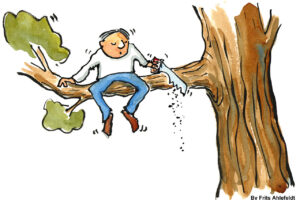

For Founder’s month each year, we celebrate Matsuoka Roshi’s coming to America in 1939, which will see its 80th Anniversary in 2019. This year I would like to quote a brief passage from “The Purpose of a Zen Life,” which is a chapter in “The Kyosaku,” the collection of his early dharma talks from the 1960s and 1970s. Later talks are available in “Mokurai,” both of which are available through our website online. We encourage you to purchase one or both of these volumes, to hear the voice of this early and important pioneer of Zen in America. And to join us in discussing his teachings online in our CloudDharma sessions Tuesday evenings, as well as in your Affiliate Sangha’s reading groups.
THE PURPOSE OF A ZEN LIFE – from The Kyosaku
The world abounds with different religions to satisfy man’s yearning spirit. Throughout time, man has yearned for something. For some, it has been the desire to be of good health, of good fame, to have a respected job, to become rich, to avoid mishap or trouble, to win the favor of the gods, or to enter into a “pure land” after death. There are a myriad of things one desires in their life and most religions try to satisfy this hunger.

Some promise success, heaven or a bountiful harvest if a person faithfully follows their precepts. Many religious people are dreaming of a supernatural power far away from themselves and of a fantastic world of good fortune when they pray and follow religious rites. Instead of living their lives more fully now, they dream fantasy and put their faith in something distant from themselves. Their lives are lived for another time or another being. Should this be the purpose of religion?
In Zen, the purpose of the religious life is to find the truth about life in this world and then to live with this knowledge. Instead of hoping to obtain some material thing or fortune from a supernatural being, in Zen we live in order to enter into the true life. We do not even desire to become a Buddha, for doing so takes the emphasis off the present moment of life and puts it into the unpredictable future. Instead, we live this moment to its fullest and so act as to develop the potential to be a Buddha which lies dormant in each of us.
The Buddha once said, “If you kill your wrong way of thinking, you will find the truth about life.” You ask: How can I rid myself of these errors? The key to this freedom was discovered centuries ago by the Buddha himself after long years of searching for the truth. He finally settled in a seated position under a tree in a garden and resolved not to rise until he had found the truth. Sitting in this position enabled him to find it. One morning, as the dawn broke, the Buddha became enlightened. He discovered the Buddha-nature within himself and the universe. His thinking no longer contained the errors that keep man in misery. Instead, his meditation had shown him the true life.
Matsuoka Roshi’s teachings are mercifully free of jargon, and marked by their simplicity, clarity, and relevance to our times and culture. Thus they do not call for much commentary or explanation. Yet they are rich with deep meaning for our times, in helping us to grasp the true meaning of religion, or spirituality in the midst of life, which he called “the living Zen.” The real Zen, in other words, cannot be usually found in books. But Matsuoka Roshi’s collections may provide the exception that proves the rule. His is the voice of a genuine Zen Master.
The only comment I would like to make is to call your attention to the sentence: “Instead of living their lives more fully now, they dream fantasy and put their faith in something distant from themselves.” This curious phrase, “dream fantasy,” is vintage teaching of Sensei (he insisted that we call him by this humble phrase, which he asserted to be the highest rank in Zen).
We all dream a fantasy of life, instead of penetrating through to the essential core underlying the form and appearance of existence. We even fantasize about Zen itself. We may fancy ourselves to be substantially enlightened, as to the deep truths of Buddhism. So this apparent criticism of those who follow other ways, expecting some reward in some other time and place, is also meant to be held up as a mirror to those who are followers of Zen. Do you see yourself in this mirror?
The place to wake up from this dream is on the cushion. As the Ch’an poem Trust in Mind (Hsinhsinming) tells us:
When the eye never sleeps all dreams will naturally cease
Waking up from this dream is not automatic, but requires considerable effort, “effort without aiming at it,” as Master Dogen tells us in Lancet for Zazen (Zazenshin). It requires “dropping off without relying on anything.” Only if we closely examine what we may be relying on, all unawares, in our meditation, can we drop it. In doing so, we may wake up from the dream, which, these days, is more like a nightmare. But perhaps it always was. The errors that keep us in misery are in our minds, not in reality.
Let me add another brief quote, from my manuscript currently seeking publication:
AGE OF ANXIETY REDUX – from The Original Frontier
Matsuoka Roshi would often refer to the times of his era as the Age of Anxiety, from the title of a book, a long poem by a contemporary, W. H. Auden. Now it seems that we are even more likely to be filled with anxiety—in a new Age of Uncertainty—driven by major shifts in society and politics around the world, as well as right here at home. Including record levels of immigration of folks fleeing persecution and poverty. Uncertainty is the new bugaboo roiling markets, as well as campaigns for office. As Ben Franklin once wrote in a letter, “…in this world, nothing can be said to be certain, except death and taxes.” Now we can add the rising cost of living, and the rich getting richer, to the witches’ brew of uncertainty itself.
On a personal level, the so-called middle class has been assailed with a lack of progress on the economic front. Reports on the distribution of accelerating wealth to the upper class does not lend a great deal of comfort to the hoi polloi. Those who are benefitting from the trends have their own reasons to feel uncertain, including the disdain and resentment, sometimes verging on contempt, with which they are regarded by those who are still struggling. Not to mention the natural bugaboos of aging, sickness and death as promulgated by traditional Buddhism, three major flies in the ointment of blissful ignorance.
Adding to the anxiety and uncertainty is the rise of the class of attention merchants, those who are in the business of capturing eyeballs—and, in the digital age, clicks—clamoring for our attention. In the advertising and entertainment business—which these days includes the daily news cycle—eyeball- and click-bait translate into dollars; and, in the political arena, power. The media then dictate what is important, to what we should be paying our attention.
Zen calls on us to redirect our attention away from the blandishments of the media—which after all are profiting from telling us what is important—to the wisdom of our own mind and body. Zen suggests that we begin reading our own breaking news, watching our own unique movie, and reading our own book, rather than following the outputs of others.
In this set of rather dire straits, I am somewhat ambivalent about contributing to the babel of voices competing for attention. In a saturated marketplace, in which new angles on Zen appear in publication frequently. I also feel compelled to write what I know about Zen from my own personal experience, simply because it has had a profoundly positive effect upon my own life. Including confronting uncertainty, and its accompanying anxiety.
So let us take these two messages into account as we contemplate celebrating our Founder’s mission to America in the 1940s, and its relevance to our practice in 2018. The fundamental conditions of existence have not changed, though our appreciation of the predicament may have improved, through massive increases in information overload.
Let us also continue Matsuoka Roshi’s mission to the deadly enemy of his home country in dire times, and live up to the promise of that mission as we move into this election year, and look forward to the 80th anniversary of his coming to America in 2019.








